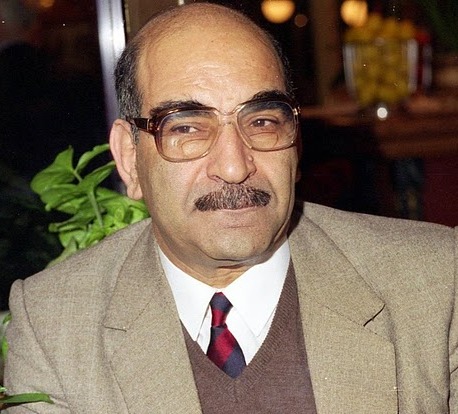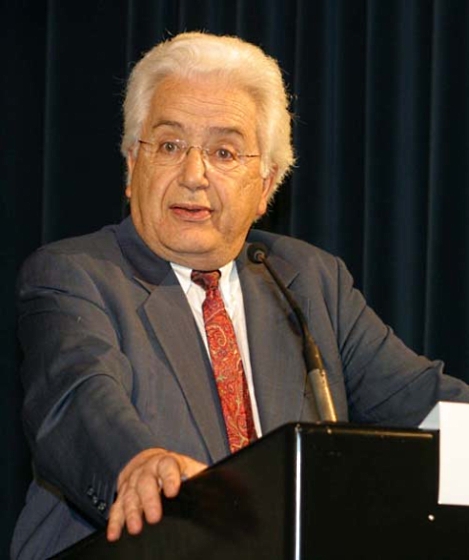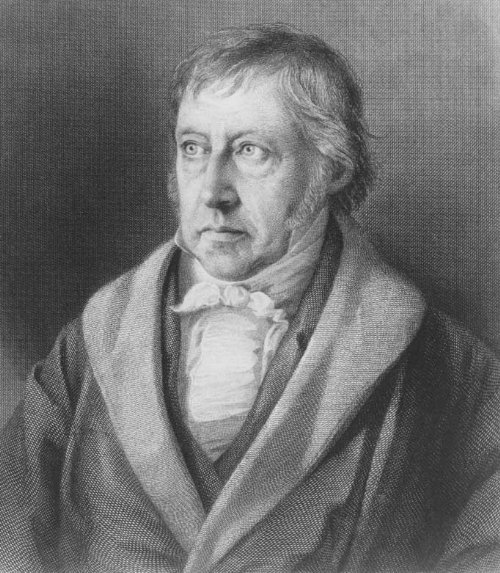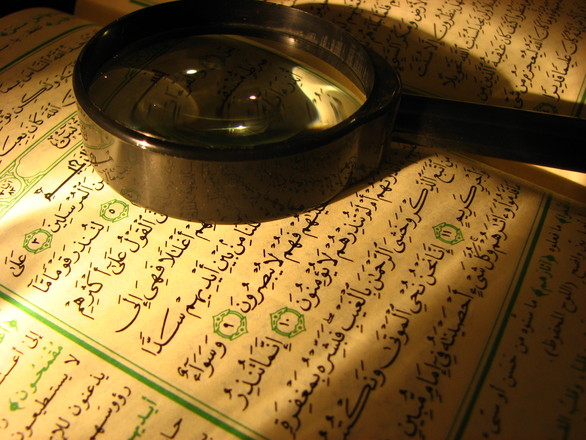
This is the general outline of Arab thought in all its successive phases. Let us now get into some details. Arkoun sees that Arab intellectuals, whether in the Arab world or scattered abroad in the European and American world, are divided into two parts: the part that is determined to achieve secular democracy open to the positive, universal achievements of modernity irrespective of the manifestations of this modernity at the present time in western societies.
BY HASHEM SALEH
IN OTHER WORDS they accept the positive aspects of the western experience and refuse its excesses and extremes in the direction of pure materialist, atheist secularism. Of course, when Arkoun says this he is actually referring to himself among others. And there is the other part which dreams of the opposite: the setting up of a politico-theocratic system exclusively ‘Islamic’ in inspiration.
This is an oppressive, procrustean system with respect equally to the freedom of men and women. The word ‘Islamic’ is placed between quotes in order to indicate a specific understanding of Islam. It is not all of Islam, despite what some fancy. For there are other, alternative understandings of Islam that are possible – an Islam of the enlightenment, or an Islam of darkness. The fundamentalist current seeks to do battle not only with the West but also with Arab liberal currents inspired by the best that European modernity has produced over the past three or four centuries. An intellectual war has opened up in the struggles between these two great currents which are consuming the entire Arab and Islamic world. But one has to recognise that the traditionalist fundamentalist current continues to enjoy a sociological, statistical predominance that far outweighs the enlightened, secular current.
Added to this is the fact that the fundamentalist Muslim Brotherhood current has now come to be accepted and supported by the West as taking the place of the dictatorial regimes which had lost their credibility and exhausted themselves and their services even in the eyes of the West. But we have perhaps changed from a military dictatorship into a religious dictatorship! In any case governments have to carry out reforms and secure the aspirations of their insurgent peoples as far as they can. This is the best way to avoid chaos, civil war and destruction.
There are other, alternative understandings of Islam that are possible
Of course there is a third, moderate midway current occupying the middle ground between the liberals and the Islamists. It plays a bridging role between the two warring poles. But a distinguishing feature of modern liberalism is that it penetrates into all parties and sects without exception. For the enlightened liberal may be a Muslim or a Christian, a Sunni or a Shīʽī, a religious believer or an agnostic, it makes no difference. This is because liberal modernity is a human philosophy in the universal sense of the word: that is, that it does not admit of any sectarianism. Here is where the superiority of modernity over antiquity, or the modern era over the Middle Ages, lies.
Whatever the case may be, one notices generally that most, if not all, Arab intellectuals tremble in fear and remain on the back foot when it comes to the most important issue occupying the world at present: the issue of a serious critical study of the Islamic religious heritage. To put it another way, they do not dare to enter into the arena of religious and theological thought itself, that impermeable fortress fenced off for centuries with barbed wire. Consequently they talk about everything else except the one thing that needs to be talked about. The best proof of this is the gifted Moroccan thinker Muhammad ‘Ābid al-Jabrī whose project ‘the Critique of Arab Thought’ enjoyed great success despite its glaring shortcomings. For he fails to deal with the sensitive issue, the most important issue in Arab thought, and instead stays cautiously clear of it.
This is why his project can not lead to any intellectual freeing up among Arabs and Muslims. Only Arkoun’s ‘Critique of Islamic Thought’ dares to plunge into these thorny questions and get to the root of the issue. This is why I have engaged in translating this over a period of 30 consecutive years. Of course Arkoun, like any great thinker enjoying a fine historical sense and a far-ranging radar, is aware that this sensitive question will be the preoccupation of several generations of Arab intellectuals before it is properly diagnosed and we find a solution. But at the same time he protests against the unjust or imbalanced presentation of Arab culture by the West. For the Arab cultural arena is not universally occupied by the obscurantist fundamentalists as the prolific studies dedicated to this in various European languages such as English and French and so on, would have us believe. Witness the volume of foreign books focusing on the issue of Islamic fundamentalism after the criminal attacks of September 11th. Witness the giant media corporations and Western satellite programs that can only see fundamentalists everywhere.
An intellectual war has opened up
There are other kinds of renewal in the Arab and indeed the entire Islamic world, but no one speaks of them. This is giving a distorted or imbalanced picture of Arabs and Muslims, for they are not all Bin Ladin or al-Zarqawi or al-Zawahiri. Western media should not spend all of its time focusing on fundamentalists to the exclusion of all others.[1]
Arkoun sees that Arab societies and in all societies ‘brought up in the Islamic phenomenon’ generally are witnessing an unprecedented intellectual turmoil. These are empirical experiments in nascent or future modernism. There are some major interactions and fertile tensions of conflict taking place between an ancient heritage and an imported modernity. Something will one day come of this, something we might call an Islamic Arab modernism, or the Islamic Arab face to modernism. The West itself will benefit from this current operation taking place beneath its gaze, a great bullfight played out between Islam and modernity. Why is this true? Since the values of modernity will be put to the test in a culture other than that of the Christian West.
At such point its ability to expand universally will increase and no longer be limited to a single cultural heritage, be it ever so important and illustrious. Basic European values such as secularism, religious freedom, human rights and the fraud-free democratic game, amongst other things, will be able to expand further after the Islamic inheritance has been put to its test. If the reconciliation process between Islam and secularism, or Islam and modernity, or Islam and democracy succeeds this will be an evidence of the greatness of the European values, the extent of their universality and their potential for extending their spread to comprehend all humanity, barring a few adjustments to be made to ensure its expansion and its ever stronger maturing. Indeed this will be to the benefit of Arabs and Europeans equally. Therefore, the bitter conflicts now taking place in all corners of the Arab Islamic world, with all the innocent blood spilt and the accompanying tears shed, will not be in vain. All these sacrifices will not go to the four winds. On the contrary, the experience of civilised nations tells us that all of this is a prerequisite for the movement of history, as it progresses forward one step at a time. Have we forgotten Hegel and the Hegelian philosophy of history?[2]
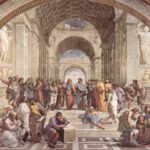
Suggested Reading
But Arkoun points to the difficult situation that the Arab intellectual is currently living. For if he wishes to write freely, particularly on religious matters, he is obliged to take refuge in the West where there is freedom of scientific research, independent critical thought and the necessary authoritative sources in foreign languages. This is what we hinted at earlier. Otherwise he is forced to keep silent and not publish anything concerning forbidden, sensitive matters if he wishes to remain in his country. Added to this is the fact that for as long as the Palestinian question has not been resolved it is not possible for any Arab intellectual to engage in radical scholarly criticism of the Arab Islamic heritage. The reason being that as long as this major, blood-strewn question persists, priority will be given to military rearmament and conscription, and therefore to a combative ideological mindset in both the Arab and Islamic fundamentalist nations. Whenever the voice of the cannon deafens the voice of critical thought or entirely marginalises it –
Whenever the guns start their play, the precious odes fall dead
– as the poet of the Arabs and Arabism Nazzar Qabbānī put it.
This is what Arkoun had personal experience of when ‘Amr Mūsā along with a group of other Arab intellectuals invited him to attend an Arab League meeting to study the state of the nation after the abhorrent crime of September 11th and the considerable embarrassment which this caused us as Arabs and Muslims. They dealt with all issues except the basic issue that imposes itself following an astounding historical event like this. That is, none dared open the door to the thorny question: the necessity to criticise the religious heritage which was employed to justify carrying out this unprecedented terrorist operation.
These are empirical experiments in nascent or future modernism
This is a forbidden issue, a taboo that no Arab intellectual dare approach – ‘it is always the fault of the Italians’ as we say, that is, it is the fault of imperialism, Zionism and colonialism. We do not suffer from anything and have no need of a radical criticism of timeworn educational programmes or fundamentalist mindsets that wipe all things out and declare four-fifths of humanity to be infidel! Such deficiencies and impairments are associated with the West alone and do not apply to us. This is what the ‘Neo-Conservatives’ and the traditionalists in the Arab Islamic world claim. So let them explain this following question: why is it that Europe did not rise or progress one step forward without undertaking the greatest operation of criticism of its Christian religious heritage, and after clearing away the remnants of sectarianism?
[1] After clarifying this point I must recognise that, in contradistinction to us modernizing intellectuals, our traditionalist, fundamentalist brothers enjoy a wide popularity amongst the poor, illiterate sectors of our society. Were this not so the Khomeinists previously in Iran, the Muslim Brotherhood and the Salafists in the Arab world would not have been the victors they currently are (this was indicated by Prof. Shakir al-Nabulsi who focused on this in this paper for the Rome Conference held on 7-8 December 2012, chaired by Stephen Ulph and with the participation of a number of Arab and western intellectuals. His paper was entitled: Muslim Reform, Obstacles and Opportunities. This conference was convened under the following watchword: Amplifying Muslim Voices for Reason & Reform. The proceedings of the conference will be published shortly). But to return to the theme of the domination of the fundamentalists over the popular masses, let us pose this question: was this not the state of enlightenment philosophy in Europe in past centuries? Even so the enlightened, rationalist interpretation of the Christian religion triumphed in the end over the sectarian, fundamentalist interpretation whose roots went back centuries. We should therefore not despair. The future belongs to us despite everything.
[2] I refer the reader here to my book which has recently been published by Dār al-Sāqī in Beirut with the title: The Arab Intifadas in the Light of the Philosophy of History.
Read Part 1 of this essay here
